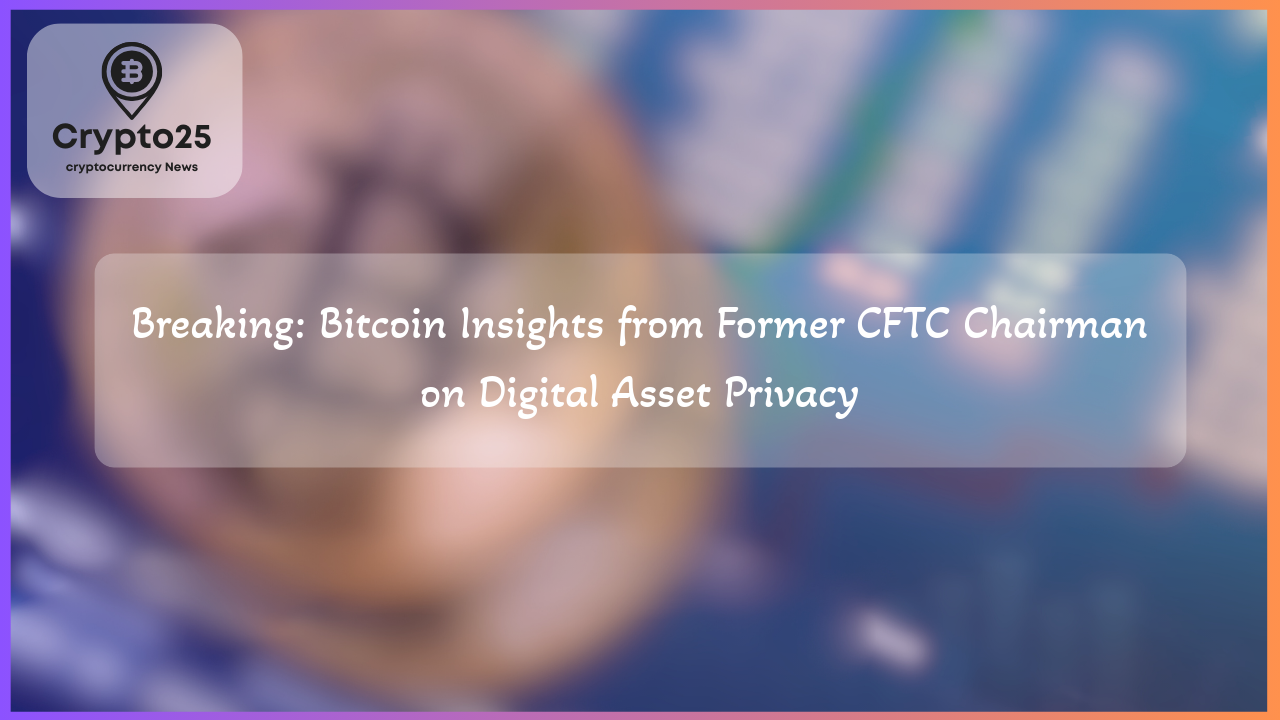
The growing cryptocurrency ecosystem is forcing global regulators to examine policy frameworks for digital assets. Timothy Massad, a former Chairman of the U.S. Commodities and Futures Trading Commission (CFTC) and a prominent voice in blockchain regulation, believes that finding a balance between individual privacy and regulatory oversight is one of the most pressing challenges facing the crypto industry today. His insights shed light on the regulatory hurdles and opportunities ahead.
### Bitcoin as a Commodity: A Milestone in Regulation
During his tenure at the CFTC from 2014 to 2017, Timothy Massad made significant contributions to the classification of bitcoin as a commodity. This landmark decision provided much-needed clarity to investors and organizations navigating the volatile crypto landscape. By treating bitcoin as a commodity, it was placed under the oversight of the CFTC, paving the way for financial products like futures contracts. This decision is considered a keystone in enabling institutional participation in the bitcoin market, while ensuring that risks were mitigated via regulatory mechanisms.
Massad emphasized the importance of establishing consistent guidelines for digital assets to foster innovation without undermining financial stability. His efforts underscored a need for frameworks that evolve with the dynamic nature of blockchain technology and cryptocurrencies. Today, this classification continues to influence how bitcoin is traded on both traditional exchanges and decentralized platforms.
### The Balance Between Blockchain Privacy and Compliance
As cryptocurrencies gain mainstream adoption, one of the key debates centers around privacy and transparency on public blockchains. According to Massad, achieving a balance between the right to privacy and regulatory oversight remains the “holy grail” for the crypto sector. The transparency of blockchain transactions, while advantageous for fighting fraud, can inadvertently compromise individual privacy. For instance, using cryptocurrency for trivial daily transactions, such as buying a cup of coffee, could potentially expose users’ entire transaction history and account balance.
Regulators worldwide face the challenge of ensuring that blockchain networks cannot be misused for illicit activities like money laundering while respecting personal privacy. Massad has highlighted that technological innovation will be crucial in solving this dilemma. Developers who create tools to ensure user anonymity, while allowing compliance checks when necessary, could revolutionize blockchain governance. As governments and developers collaborate, the potential for a scalable solution becomes increasingly feasible.
| Title | Details |
|---|---|
| Market Cap | $1.2 Trillion |
### The Future of Cryptocurrency Regulation
In addition to bitcoin’s classification as a commodity, Timothy Massad has actively contributed to modern discussions about crypto regulation. Speaking at the first Senate Banking Subcommittee hearing on Digital Assets, he argued for a well-structured approach to address the risks and opportunities presented by cryptocurrencies. He has also appeared on global platforms like Bloomberg to stress the importance of regulatory clarity.
As innovation outpaces legislative reforms, Massad believes that collaborative global efforts are essential. Regulatory gaps can incentivize bad actors who exploit decentralized frameworks, but excessive regulation risks stifling innovation. Massad encourages policymakers to adopt a balanced perspective that aligns technological progress with society’s broader interests. Countries that can achieve this will likely attract significant blockchain projects and investments, shaping the future of global crypto markets.
The regulatory landscape for cryptocurrencies is still evolving, and leaders like Timothy Massad continue to influence its trajectory. As nations grapple with how to address emerging challenges in crypto adoption, the insights provided by experts like Massad offer a guiding framework. By addressing key challenges like privacy, compliance, and innovative regulation, the crypto ecosystem can move toward sustainable growth while reinforcing trust among users and institutions alike.
